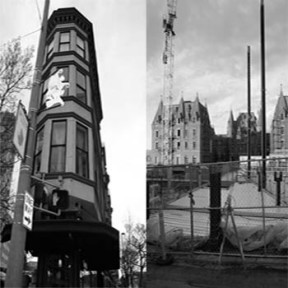Its been six years since a major motion picture was filmed in Tacoma. For Marty Campbell, thats entirely too long.
More movies are filmed in Seattle than Tacoma, and a lot more movies are filmed in Vancouver, B.C., says Campbell, a Tacoma resident, owner of Buzzards CDs and Stadium Video, and president of Tacomas Downtown Merchants Group. I think its easier for filmmakers to work in Tacoma than Seattle. There are a variety of locations in Pierce County — we go from sea level to 14,000 feet, all in one county. Its also easier to control the environment downtown.
Try explaining that to Hollywood producers. A favorable Canadian exchange rate and Tacomas anemic film-production department and commission have contributed to a lack of filmmaking — and the out-of-state revenues that come with that work — in the city.
A lot of business is going to Canada, says Nancy Grabinski-Young, Film & Movie Location Coordinator at the City of Tacomas Economic Development Department. They have sound stages and its cheaper. Were dabbling in it at this point.
Grabinski-Young handles permitting, which costs a production company a flat $50 fee for the length of the shoot (Seattle charges $25 per day). She says television commercials comprise most of the citys out-of-state production work. But they dont equal the economic windfall of a major motion picture that sets up production in Tacoma. They are in our hotels and restaurants, says Grabinski-Young. If they need to build sets, they spend money at our hardware stores.
According to a 2001 study released by the Washington State Film Office, an agency that works to promote Washington to out-of-state producers, film and video production supported 8,033 jobs in the state, generated $260.9 million in labor income, and created $18.4 million in additional taxes for state and local communities.
The film office also reports that Washington state provides a number of financial incentives for film-production companies, including: state and local sales tax exemptions on rental and purchase of production equipment; no state income tax; local, state and car rental tax exemptions for rental vehicles used in production activities; and sales tax exemption for hotel/motel stays of 30+ consecutive days.
But the film office, which receives $897,000 in biennial state funds, is on the chopping block. This week Gov. Christine Gregoire proposed eliminating the program. During her budget proposal announcement, Gov. Gregoire told reporters, Hollywood doesn’t need a subsidy from state government. Movies or TV commercials are shot in Washington because of desirable scenery, not the film office.
Still, news of budget cuts for state film production hasnt deterred Campbell. With the help of fellow Tacoma resident and film buff James Hume, Campbell has headed up the Tacoma Film Club, which is committed to the promotion of film arts and filmmaking throughout the greater Tacoma area. According to Campbell, the club has 45 members and counting, and club members participate in a variety of film discussions and support local film projects, artists and venues. It also assists in the production and presentation of film festivals and other film-related events.
What sets this film club apart from others is its economic impact on the citys small film community.
Case in point: a screening of The Re-Animator earlier this month at Tacomas Grand Cinema. Though the B-Movie horror film is more than 20 years old, Tacoma Film Club members turned out en masse, largely on word that the movies director, Stuart Gordon, was scheduled to attend.
We pushed for everyone to go see the film and be there, says Campbell. There were 20 to 30 people from the Tacoma Film Club there. In Tacoma, thats the difference between average turn-out and very good turnout.
Another example: an Academy Awards party held last month at a theater downtown. We put it on in a month, says Campbell. We had a great group of volunteers and more than 160 people attended.
The Tacoma Film Club also sponsored the 2004 Last Reel Film Festival, which received more than 80 submissions, and screened films from Hollywood, Los Angeles, and Toronto.
Indeed, its not enough for the Tacoma Film Club to meet once a month and talk about movies. The club aims to raise Tacomas film arts consciousness and promote local film production by planning film festivals and events to promote local film artists; developing and maintaining a registry of directors, producers and actors,; developing strategies for promoting and supporting local film venues, merchants and production; developing stakeholder rights with the City of Tacoma; and working with the city to increase interest in and promote film projects.
The Tacoma Film Club contacted Grabinski-Young earlier this year to discuss promoting film production in Tacoma.
Were setting the foundation, says Campbell. We want to be a connection point for film to thrive in the Tacoma area. Wed like to have a few hundred members and filmmakers alike, so theres a built-in audience and something to plug into. When filmmakers come calling, we want to be ready to answer the call.








